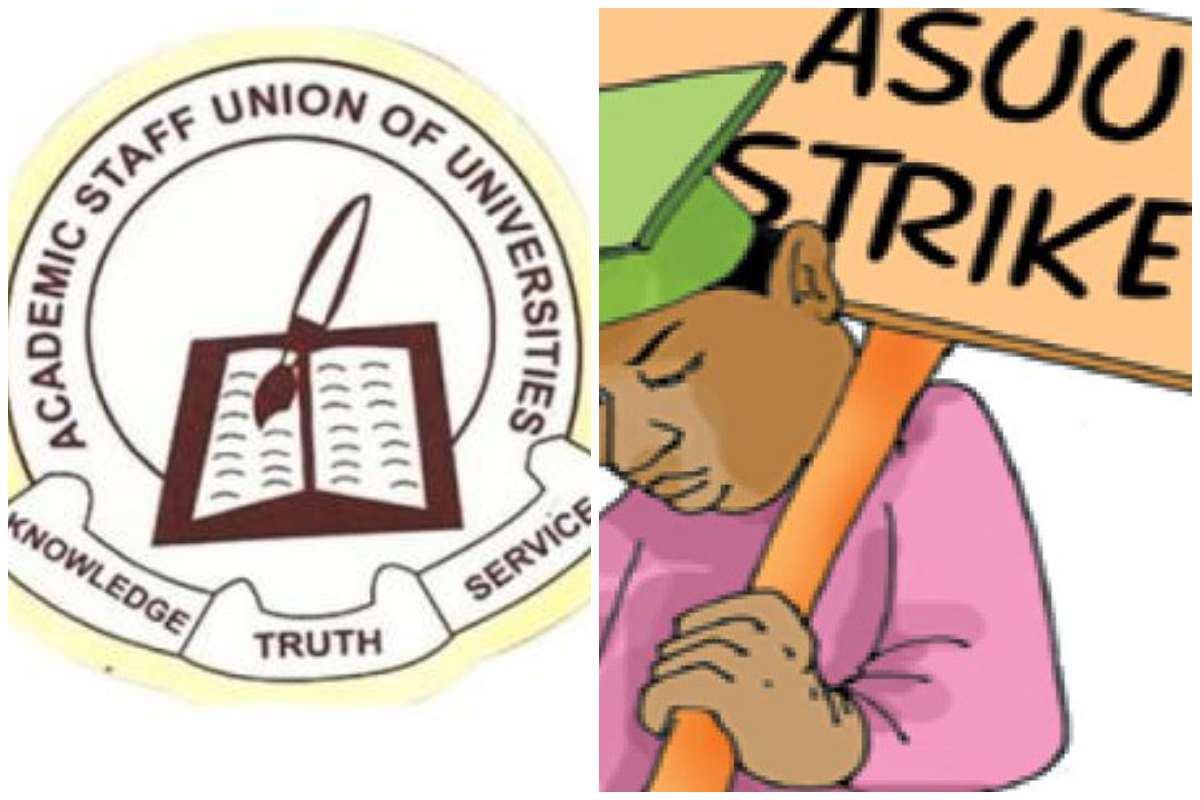In years gone by, before the time of written contracts, agreements were sealed with firm handshakes because people were expected to keep to their words. Ruination awaited dishonourable people who failed this test of integrity because people avoided doing business with people of poor reputation. Unfortunately, in these days of signed contracts and written agreements, unconscionable lawyers routinely defend people who are guilty of failing to keep to their word.
Regrettably, government has joined the league of those who habitually don’t keep to their words. Budgets aren’t adhered to, contractors aren’t paid, and judgment debts aren’t settled. This dishonourable behaviour is the crux of the failure to resolve the issues surrounding the strike by the Academic Staff Union of Universities (ASUU).
Undeniably, the continued closure of the nation’s universities is of critical concern because it compromises the capacity of our youths to extricate the nation from the mess their elders have placed the nation in.
On February 4, 2022 ASUU commenced a warning strike to protest the federal government’s refusal to honour the 2009 accord which supposedly “compelled” them to invest N200 billion annually in the university system over the next five years. ASUU is demanding the implementation of the 2009 FGN/ASUU agreement, which involves the release of university revitalisation funds, release of earned allowances for university professors, and implementation of the UTAS payment platform for wages. Rather than honour its obligations, the profligate administration claim they lack the funds to meet the terms of the agreement. Indeed the Senate President went as far as saying that the agreement should never have been signed in the first place! Good governance entails policy continuation, but in Nigeria, governance increasingly appears to be about backtracking and failing to honour spoken words or agreements!
In addition to habitually refusing to honour agreements, the crux of government’s failure to improve the tertiary educational system is their superficial understanding of what education entails. They equate “schooling” with “education”, but they aren’t the same. Schooling is about simply attending classes, and waiting to write and pass examinations, while education involves both formal means of gaining knowledge and informal sources such as learning from peers, work situations and life experiences. Even as universities are closed for schooling, their students are being “educated” on the fact that government doesn’t regard their plight as a priority. They are also being “educated” on their low employment prospects due to the low value placed on Nigerian degrees and poor standards of Nigerian universities. They now understand why holders of high political office send their children to overseas universities.
ASUU vehemently disputes the federal government’s claim that they don’t have the funds to honour the agreement. They correctly point out that it’s simply a matter of priorities. Indeed the amount purportedly spent on the irrational school-feeding programme and various opaque cash handout jamborees would have been more beneficially spent addressing issues in tertiary education. Predictably the pleas by top government functionaries for ASUU to consider the plight of the Nigerian students and return to class are regarded as insincere. ASUU asked pointedly when exactly this administration has ever shown itself interested in the plight of Lecturers or students.
The negative fallout from incessant ASUU strikes is unquantifiable. Education is one of the factors that most influences the progress of peoples and societies. The links between education and developing society are strong since both influence each other. A well-planned and well-executed educational system changes society by improving and strengthening skills, values, communications, personal prosperity and freedom. Education is the engine that drives the level of development in a nation by enriching cultures, improving standards of social welfare, producing economic growth, expanding opportunities, promoting social mobility, and strengthening the rule of law. Education increases human dignity and strengthens sustainable development.
Government’s failure to appreciate the relative importance of education in national development was articulated by the Senate President who pleaded with protesting students not to disrupt political activities. This is the height of insensitivity considering that the amount charged by his ruling party for sale of presidential nomination forms is more than a professor’s salary for life, and the total amount collected is less than the salary arrears being disputed by ASUU!
Indisputably, the nation’s educational system is in disarray at all levels while this administration offers no solutions but concentrates on retaining power. Finally moved to actually do something positive rather than simply keep quiet, the President’s knee jerk reaction was to relocate negotiations to Aso Rock. It comes as no surprise that the meeting attended by Academic Staff of Universities (ASUU), Non-Academic Staff Union of Educational and Associated Institutions (NASU), Senior Staff association of Nigeria Universities (SSANU), and National Association of Academic Technologists (NAAT), could not resolve the issues even as other academic staff unions indicate their readiness to embark on indefinite strike action. Truly, government has lost goodwill and unions no longer trust that they have good intentions. Even as the Minister of State for Education rightfully apologised for the lingering strike, the Minister of State for Labour and Employment said, “Labour disputes are highly technical issues and need relevant technical requirements and knowledge to interrogate”. This of course is sheer bunkum. There is nothing “technical” about honouring agreements! The stalemate has arisen because there is no incentive for ASUU to negotiate any new accord when time and again government proves they have no intention of honouring such agreements.

 Join Daily Trust WhatsApp Community For Quick Access To News and Happenings Around You.
Join Daily Trust WhatsApp Community For Quick Access To News and Happenings Around You.


